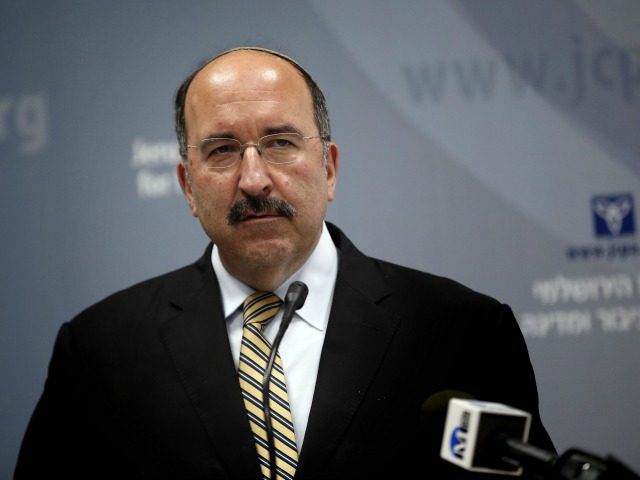TEL AVIV – President Barack Obama may not use the automatic U.S. veto on an anti-Israel resolution at the UN Security Council on Thursday, which will lead to boosting the Boycott, Divestment and Sanctions (BDS) movement around the world, former Israeli ambassador to the UN Dore Gold said.
“As of now, I simply don’t know if the veto will be guaranteed,” Gold, who until October also served as director of the Foreign Ministry, said in a conference call with reporters.
Speculation has been rife as to whether Obama will use his last weeks in office to allow an anti-Israel resolution to pass. Thursday’s vote, which will be presented to the Security Council by Egypt, demands that Israel “immediately and completely cease all settlement activities in the occupied Palestinian territory, including East Jerusalem.”
[UPDATE: Later on Thursday, Egypt requested a delay in the vote to allow time for consultations on the text of the resolution.]
In 2011, Obama vetoed a similar resolution.
“I don’t know that at five minutes to midnight whether we’ll get another veto this time,” Gold said.
The former ambassador added that the vote would likely pave the way for anti-Israel NGOs to push a BDS agenda.
“What this resolution will do is leave in its wake a number of initiatives in the NGO community that will require governments taking legal measures to restrict the actions of NGOs who really want to advance a boycott and divestment agenda,” he said.
Thursday’s vote, though expected, took Israel by surprise and Prime Minister Benjamin Netanyahu in the middle of the night took to Twitter to urge the U.S. to “veto the anti-Israel resolution at the U.N. Security Council on Thursday.”
The US should veto the anti-Israel resolution at the UN Security Council on Thursday.
— Benjamin Netanyahu (@netanyahu) December 22, 2016
In his last address to the UN Security Council last week, outgoing secretary-general Ban Ki Moon admitted that Israel is subjected to disproportional condemnation at the United Nations.
“Decades of political maneuverings have created a disproportionate volume of resolutions, reports and conferences criticizing Israel,” Ban said. “In many cases, rather than helping the Palestinian cause, this reality has hampered the ability of the UN to fulfill its role effectively.”
Gold applauded Ban’s public admission of anti-Israel bias. There is a “very serious problem” at the UN, Gold said.
“The secretary-general has made a correct observation,” Gold said, adding that it is appalling how Israel is called out when there are cases of occupied territories all around the world that are not addressed by the international body. He mentioned the examples of population transfers involving Moroccans moving into Western Sahara and Turks into northern Cyprus.
“Do you see any UN resolutions dealing with this? No. And yet this is occurring all the time,” he said.
Gold also said that the Fourth Geneva Convention, which is the basis for the UN’s criticism of Israel’s settlement enterprise, is “misapplied in the case of Israel.”
The treaty, adopted in 1949 in response to Nazi war crimes, prohibits population transfers from an occupying power during war to territories under its control. Israel refutes that the Fourth Geneva Convention applies to Israeli settlements, since the territories were captured during 1967’s defensive Six Day War from enemies that were illegally occupying them.
“We are seeing the Iranians using the Shia [Shi’ite] population from Iraq and as far away as Afghanistan and Pakistan and moving them into these areas to alter the demographic balance of the Levant. That is exactly what the Fourth Geneva Convention wanted to address, and is exactly what is being ignored today by the UN,” he said.
He also slammed the UN for completely ignoring the “ethnic cleansing” occurring in Syria.
“We are now in aftermath of the fall of Aleppo, and we are seeing ethnic cleansing across the board in Syria, where Sunni Arabs are scared to death, leaving their homes, and moving into Turkey and Europe,” he said.
“To have everyone be obsessed about Israeli settlements, which frankly are not the case that the international community was worried about after World War II, and have this tragedy in Syria ignored is a very bad development,” he said. “It is bad for the UN, bad for the development of international law, and bad for developing a sense of justice about vulnerable populations losing their homes and becoming refugees around the world.”

COMMENTS
Please let us know if you're having issues with commenting.